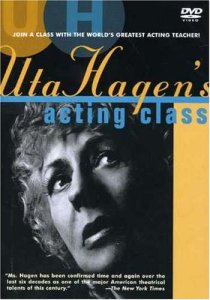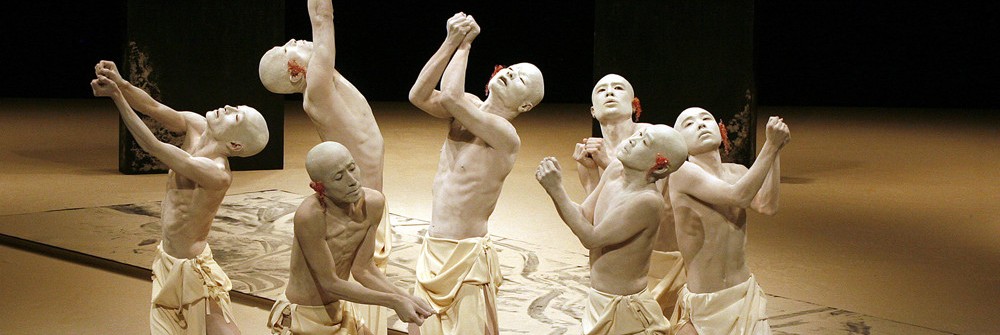 A week or so ago I had the pleasure of taking part in an acting workshop based on the teachings of Ute Hagen. Having had my own theatre education in Europe, Hagen’s work was largely unknown to me, despite the fact that her approach to naturalistic acting, along side that of Stanford Meisner and Lee Strasberg, is widely taught and respected in North America. It has been something of a revelation and my ignorance of her work rather embarrassing. She died in 2004, but her influence continues to grow. Of her work she said, I teach acting as I approach it – from the human and technical problems I have experienced through living and practice.
A week or so ago I had the pleasure of taking part in an acting workshop based on the teachings of Ute Hagen. Having had my own theatre education in Europe, Hagen’s work was largely unknown to me, despite the fact that her approach to naturalistic acting, along side that of Stanford Meisner and Lee Strasberg, is widely taught and respected in North America. It has been something of a revelation and my ignorance of her work rather embarrassing. She died in 2004, but her influence continues to grow. Of her work she said, I teach acting as I approach it – from the human and technical problems I have experienced through living and practice.
I was particularly struck by exploring her ways into creating character. One of her obituaries commented that there was a balance in her approach, which was method acting, but not taken to the self-immolating extremes of some of its practitioners. Though she demanded respect, she eschewed pretension. These nine questions, in order, form the core of that character work:
1. Who am I? (All the details about your character including name, age, address, relatives, likes, dislikes, hobbies, career, description of physical traits, opinions, beliefs, religion, education, origins, enemies, loved ones, sociological influences, etc.)
2. What time is it? (Century, season, year, day, minute, significance of time)
3. Where am I? (Country, city, neighborhood, home, room, area of room)
4. What surrounds me? (Animate and inanimate objects-complete details of environment)
5. What are the given circumstances? (Past, present, future and all of the events)
6. What is my relationship? (Relation to total events, other characters, and to things)
7. What do I want? (Character’s needs. The immediate and main objective)
8. What is in my way? (The obstacles which prevent character from getting his/her need)
9. What do I do to get what I want? (The action: physical and verbal, also-action verbs)
She wrote two books, Challenge for the Actor and Respect for Acting, both of which are still in print. There is also a fascinating recording of a series of master classes she gave, of which there is an excerpt here:
.
With her second husband, Herbert Berghof, who was a protégé of the German realist director Max Reinhardt, she co-founded the HB Studios in New York whose doors are still open today. I would suggest that if you don’t know the work of Ute Hagen or have struggled with Stanislavski or Strasberg, give her a go.
Incidentally, and not unconnected, the day after my workshop I read this article, published in the Slate and written by Marcus Geduld, in which he attempts to answer the question, How Do You Differentiate Good Acting From Bad Acting?
If anyone tells you there are objective standards, they’re full of crap. This is a matter of personal taste. There are trends. There are many people who loved Philip Seymour Hoffman’s acting. But if you don’t, you’re not wrong. At worst, you’re eccentric.
I’m a director who has been working with actors for almost 30 years, and I’m the son of a film historian. I’ll give you my definition of good acting. But I really want to stress that if I say, “Pacino is great,” and you disagree, my experience does not make me right and you wrong. It just means we have different tastes.
First, for me, an actor is good if he makes me believe he’s actually going through whatever his character is going through. I’m talking somewhat about physical stuff (“He really is getting shot!” “He really is jumping off a moving train!”) but mostly about psychological stuff (“He really is scared!” “He really is in love!”). If an actor seems to be faking it, he’s not doing his job.
You can read the rest of the article here, and I would recommend it.
